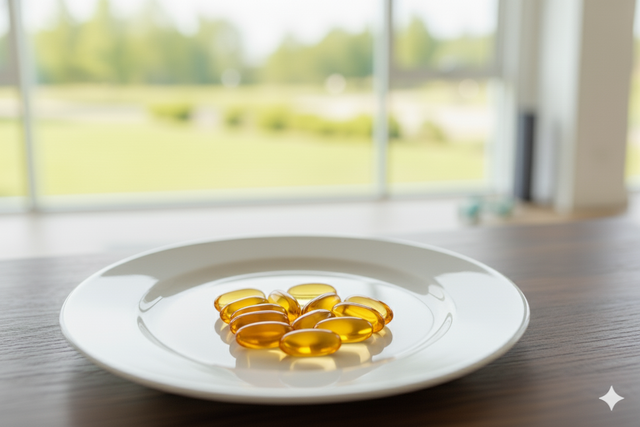However, many people still wonder: How to take omega-3 fish oil properly to achieve maximum effectiveness, especially, should you take it continuously or need to take a break for a while? Now, science has a clear answer to this problem, according to the science news site Scitech Daily.
New research, just published in the medical journal JCI Isight , has found the best way to take omega-3 fish oil to maximize cardiovascular benefits.
The study, conducted by scientists at the University of Helsinki and the Wihuri Research Institute (Netherlands), focused on EPA - an omega-3 fatty acid found in fish oil, to investigate the effects of EPA on blood fat levels and overall metabolism in healthy adults.
In this study, 38 healthy participants were given high doses of EPA. Blood samples collected before, during, and after the trial showed clear differences in how individuals responded to this fatty acid.

The best way to take omega-3 fish oil to maximize heart health benefits has been found.
Photo: AI
The best way to take omega-3 fish oil for heart health
The authors examined the effects of high-dose EPA supplementation for 28 days on fatty acid composition, lipoprotein subtypes, lipidome, and atherogenic properties in normolipidemic participants.
The results found that the effects of omega-3 fatty acids on the cardiovascular system can vary from person to person. Notably, this effect disappears quickly after stopping drinking, meaning that to be good for the cardiovascular system, it is necessary to drink continuously every day, according to Scitech Daily.
Blood samples taken during EPA supplementation showed a significant effect in all participants. However, no two samples were the same. Each person had a unique “lipid fingerprint” in their blood, and this remained even after EPA supplementation, said Professor Katariina Öörni, lead author of the study.
The results also showed that EPA was absorbed very efficiently by the body, leading to a sharp increase in blood levels. Notably, EPA levels dropped rapidly after stopping supplementation, especially in people with low initial EPA levels.
Additionally, EPA helps improve blood lipid profiles and reduces the adhesion of lipoproteins to artery walls – which is an important factor in atherosclerosis.
Although the study was short-term, the results showed that EPA can modulate blood lipid profiles and risk mechanisms related to atherosclerosis even in healthy individuals.
Dr Lauri Äikäs, co-author of the study, said: “This finding highlights the role of metabolism in preventing cardiovascular disease. The effects of EPA vary widely from person to person and disappear rapidly once consumption is stopped, which is important if EPA causes side effects.
The team said they will continue to conduct experiments at the cellular level to investigate the effects of EPA on inflammatory cell activity and lipid mediators that help inhibit inflammation.
Source: https://thanhnien.vn/dau-ca-omega-3-khoa-hoc-tim-ra-cach-uong-tot-cho-tim-mach-185251022235732305.htm












































































































Comment (0)